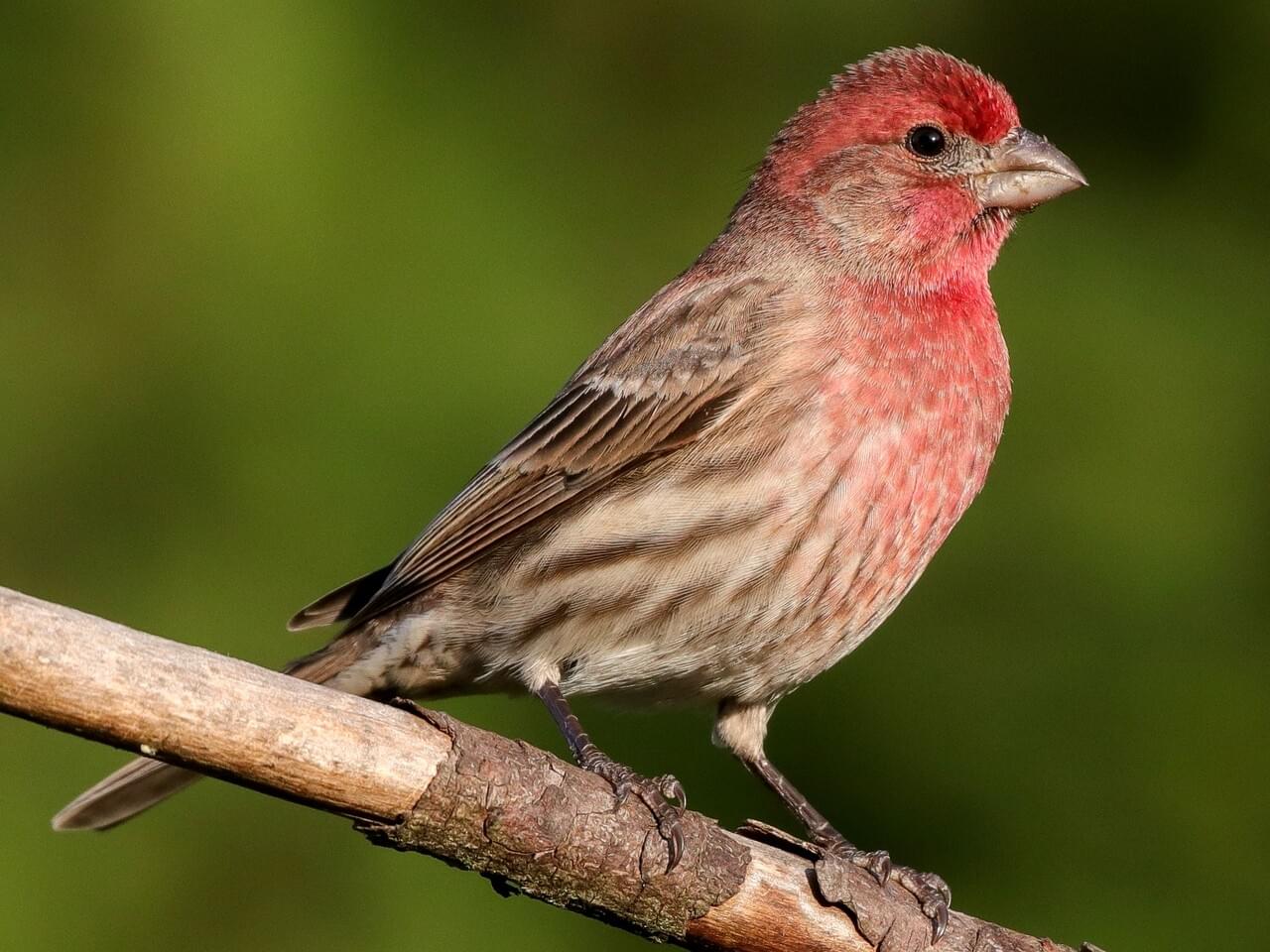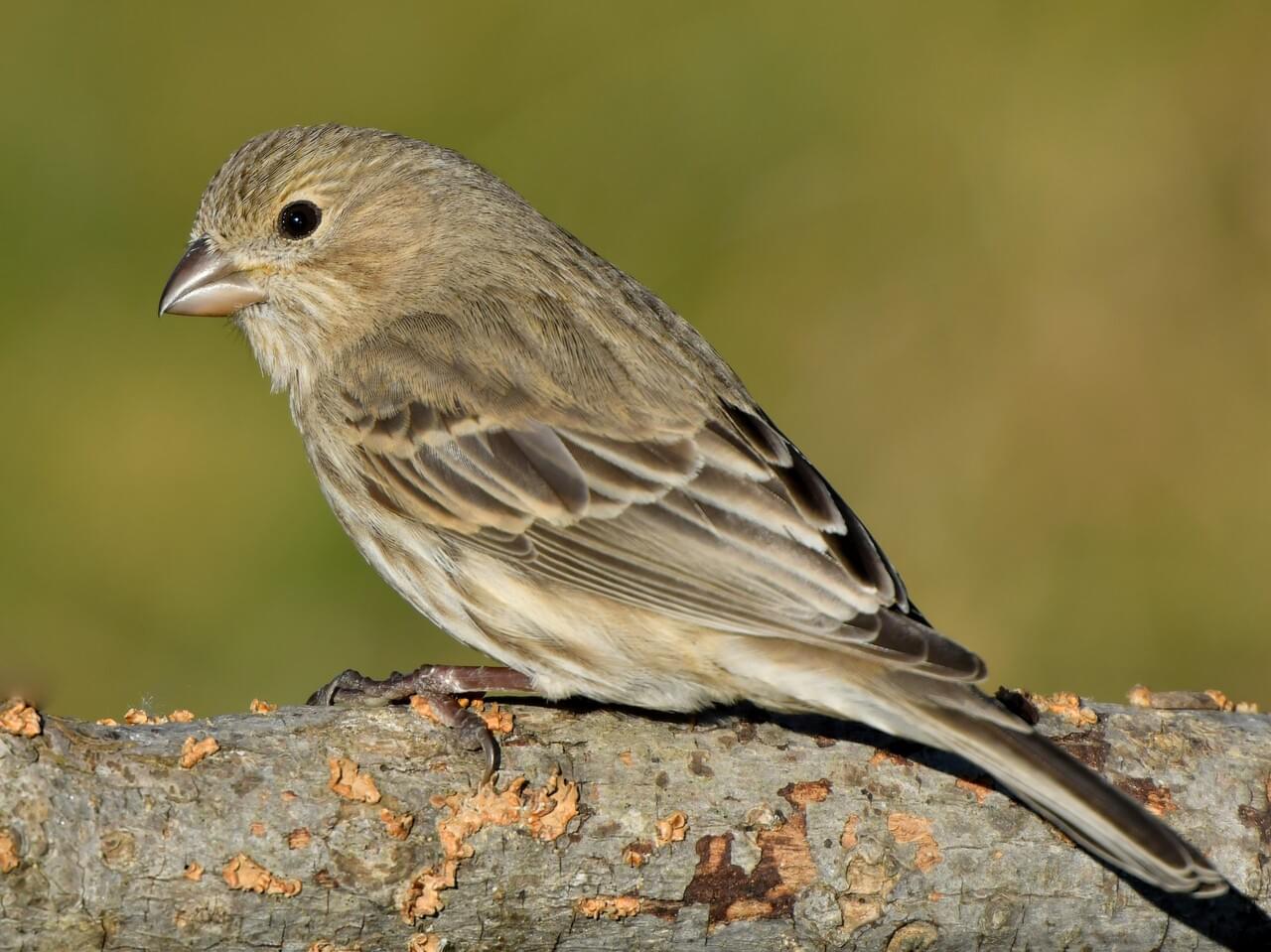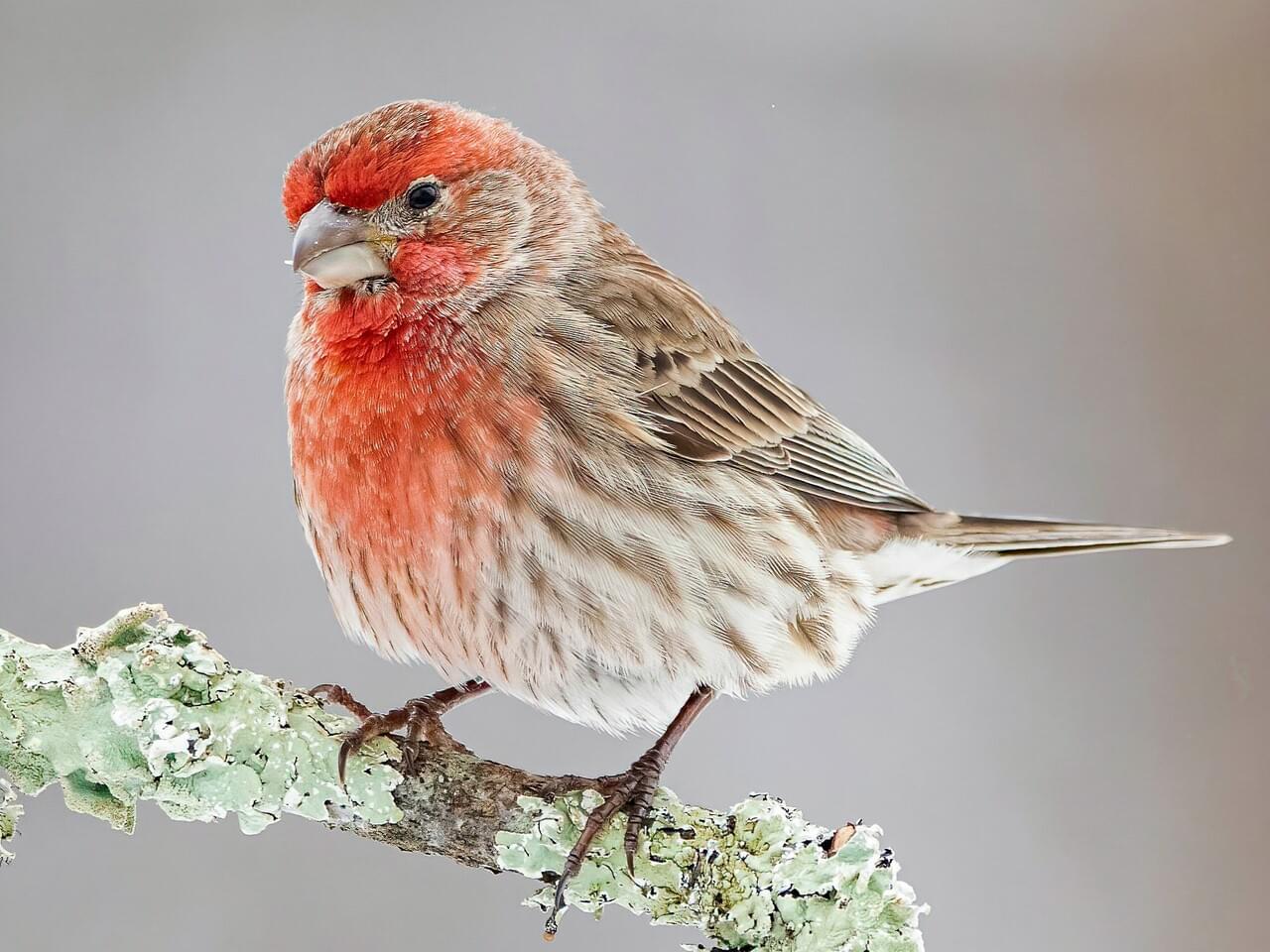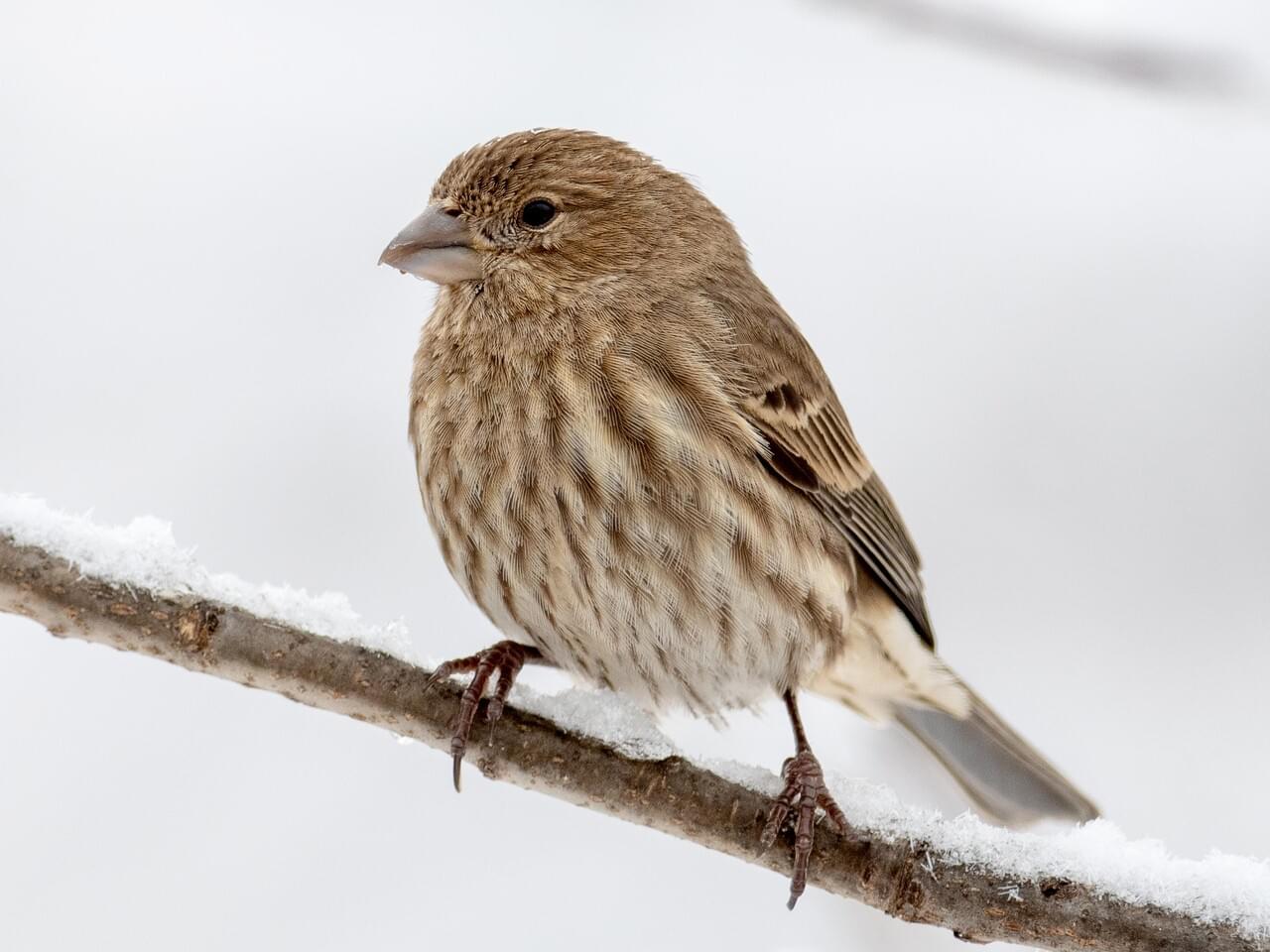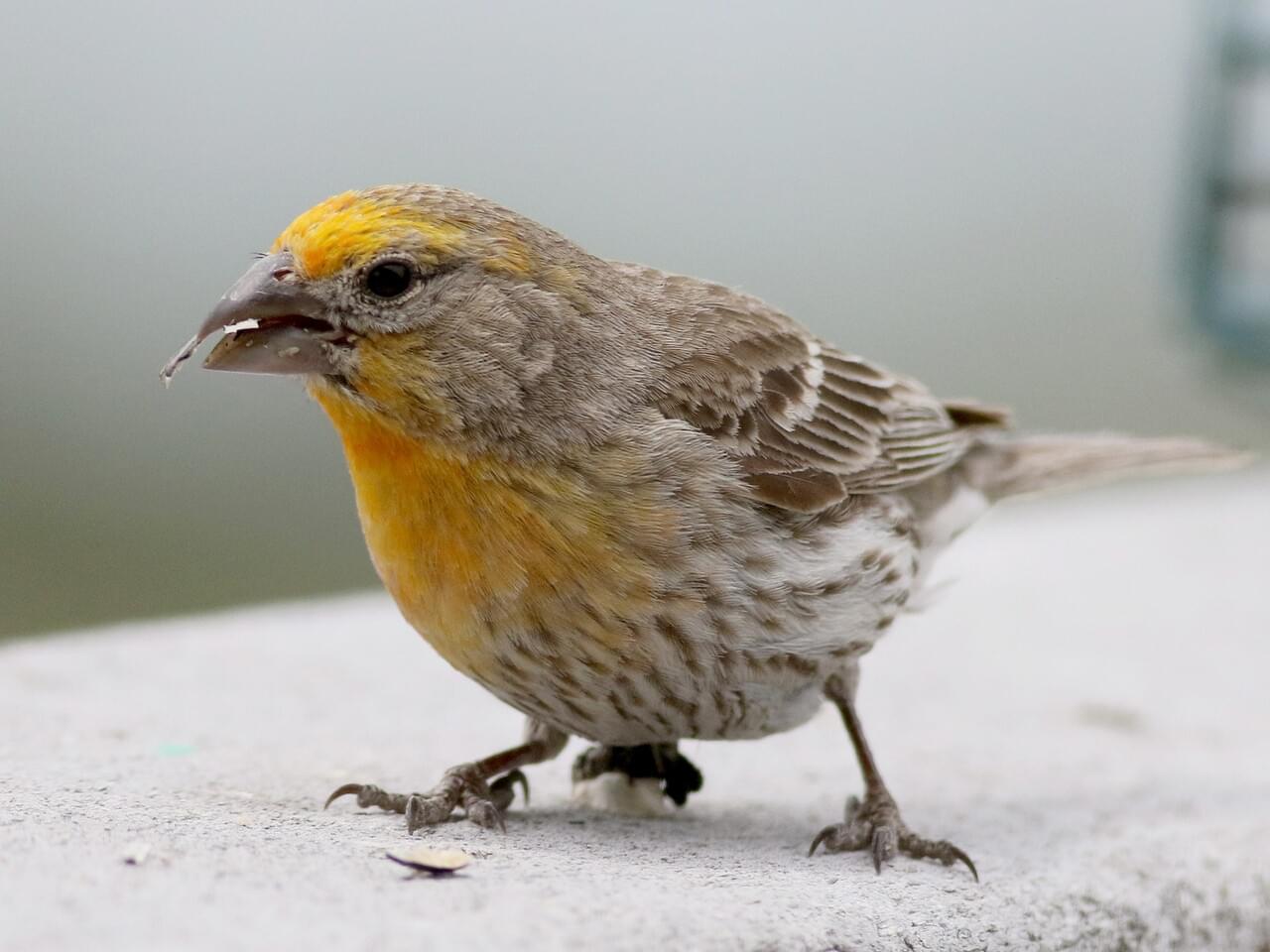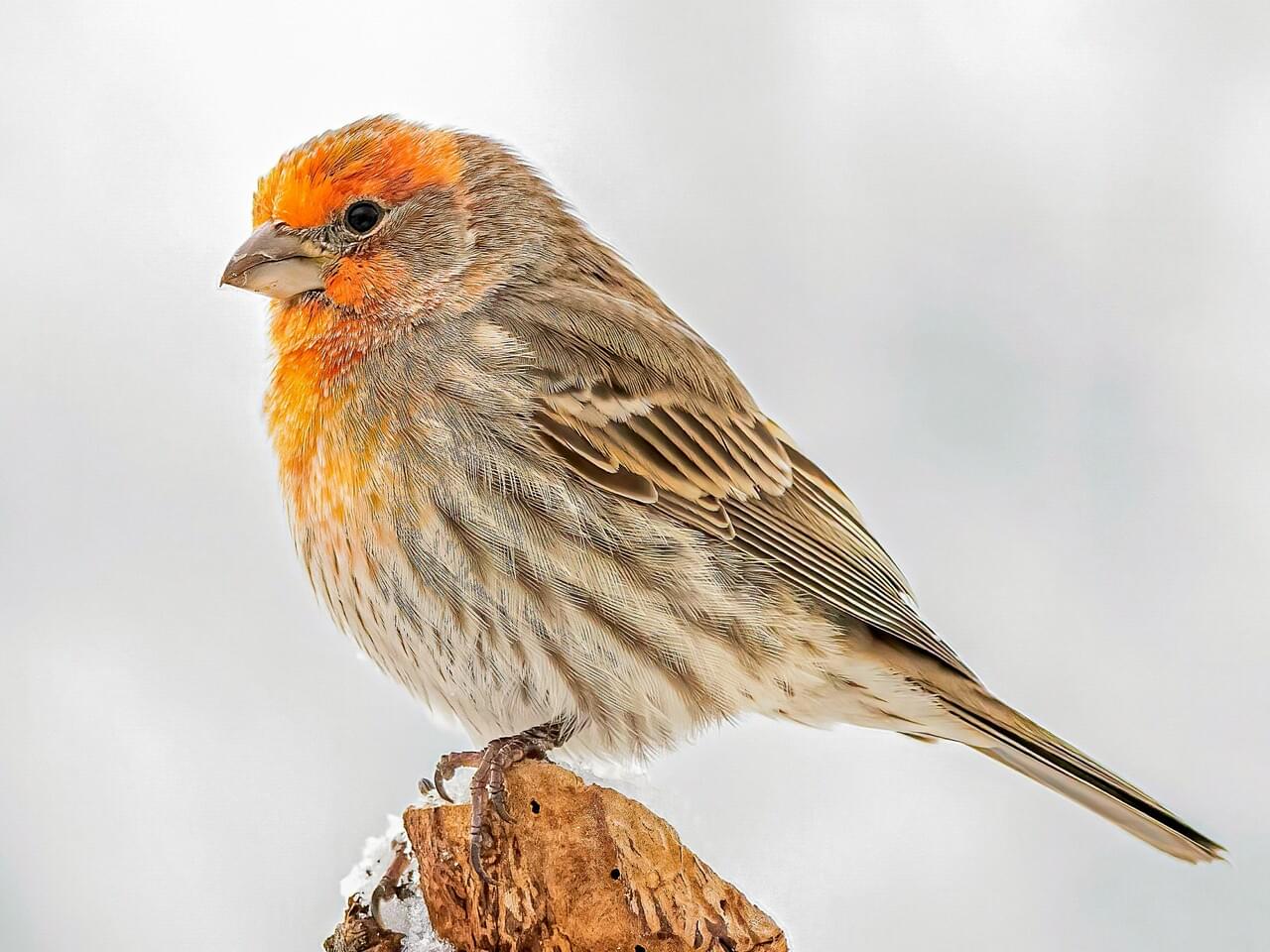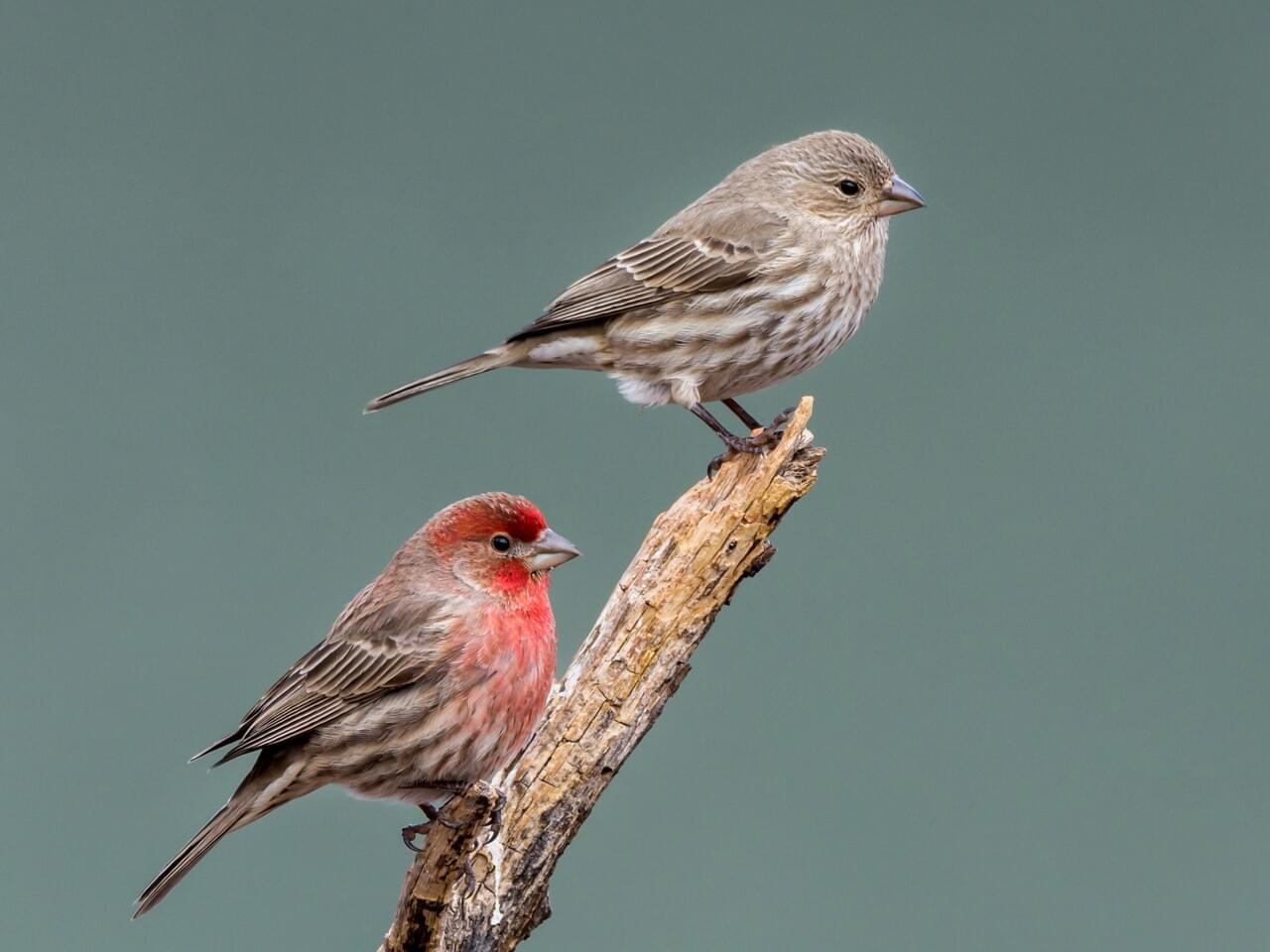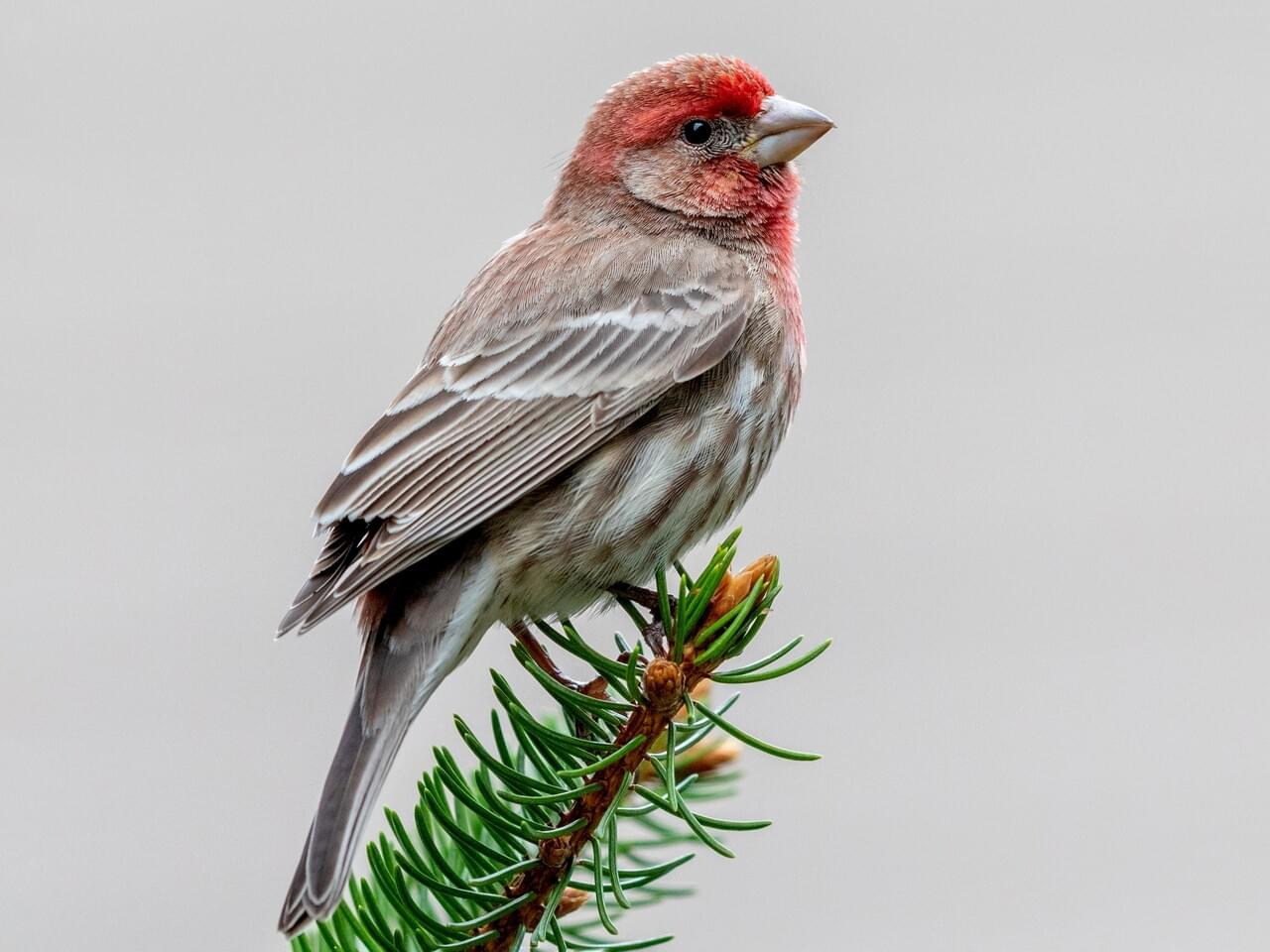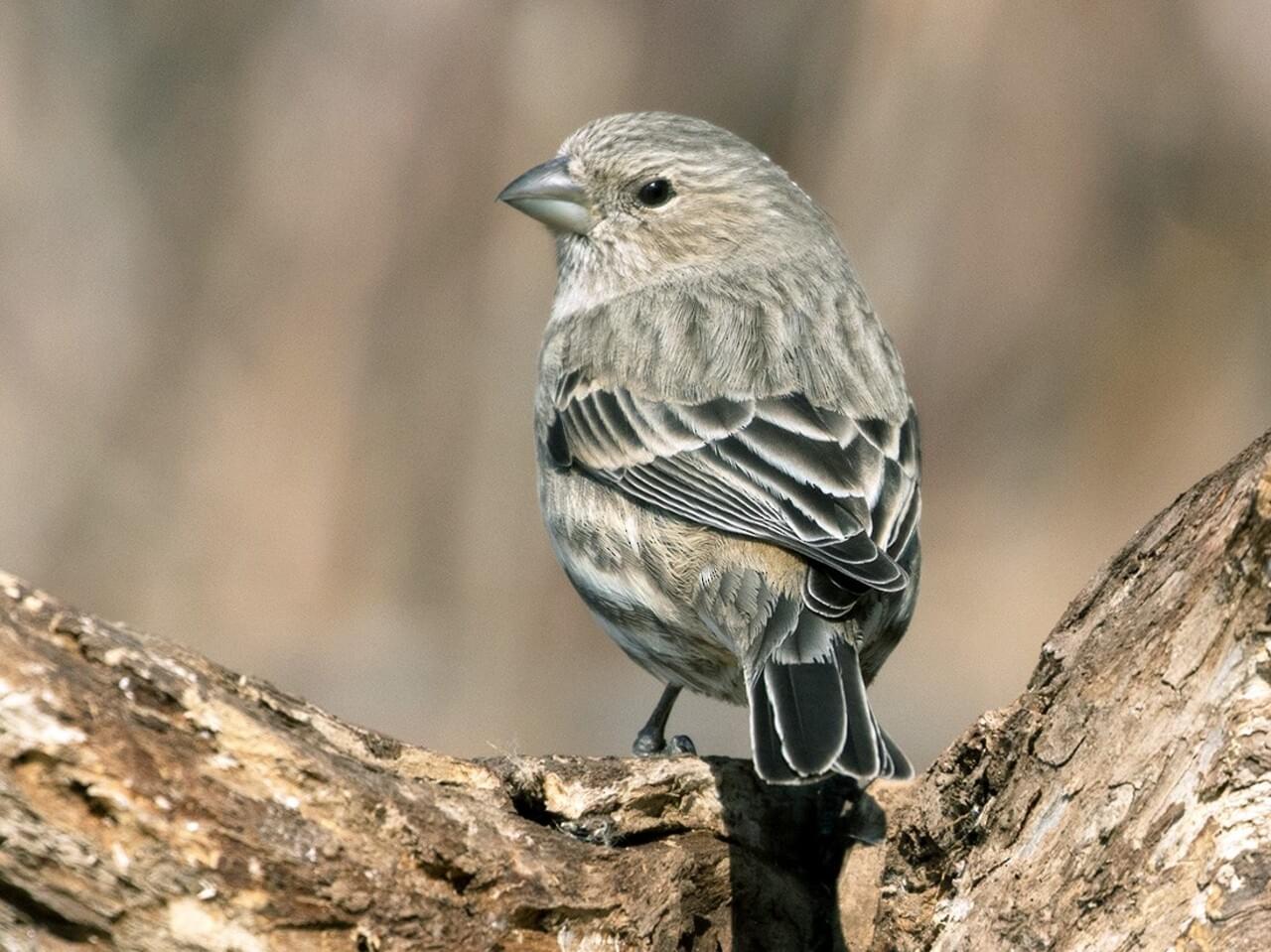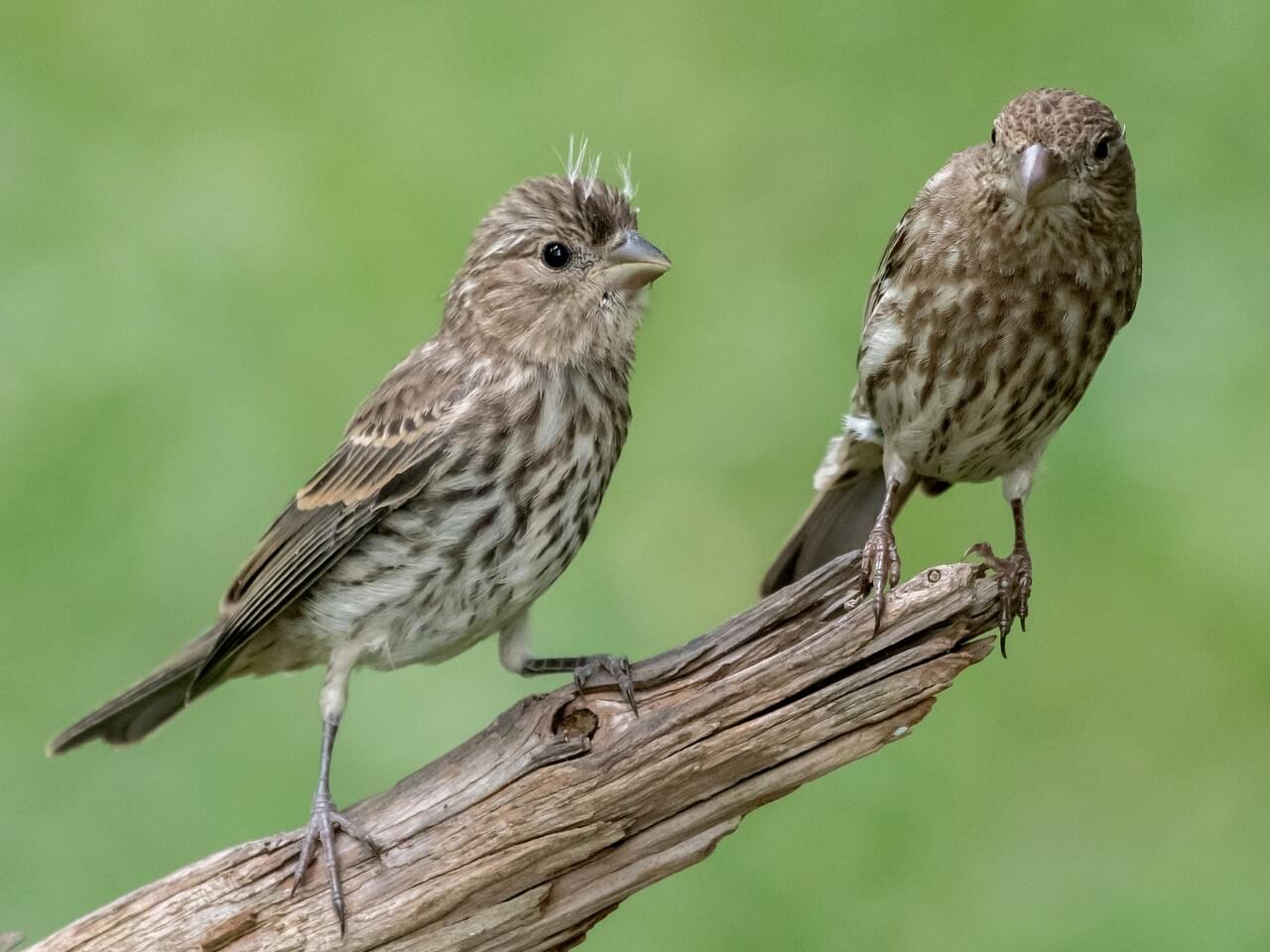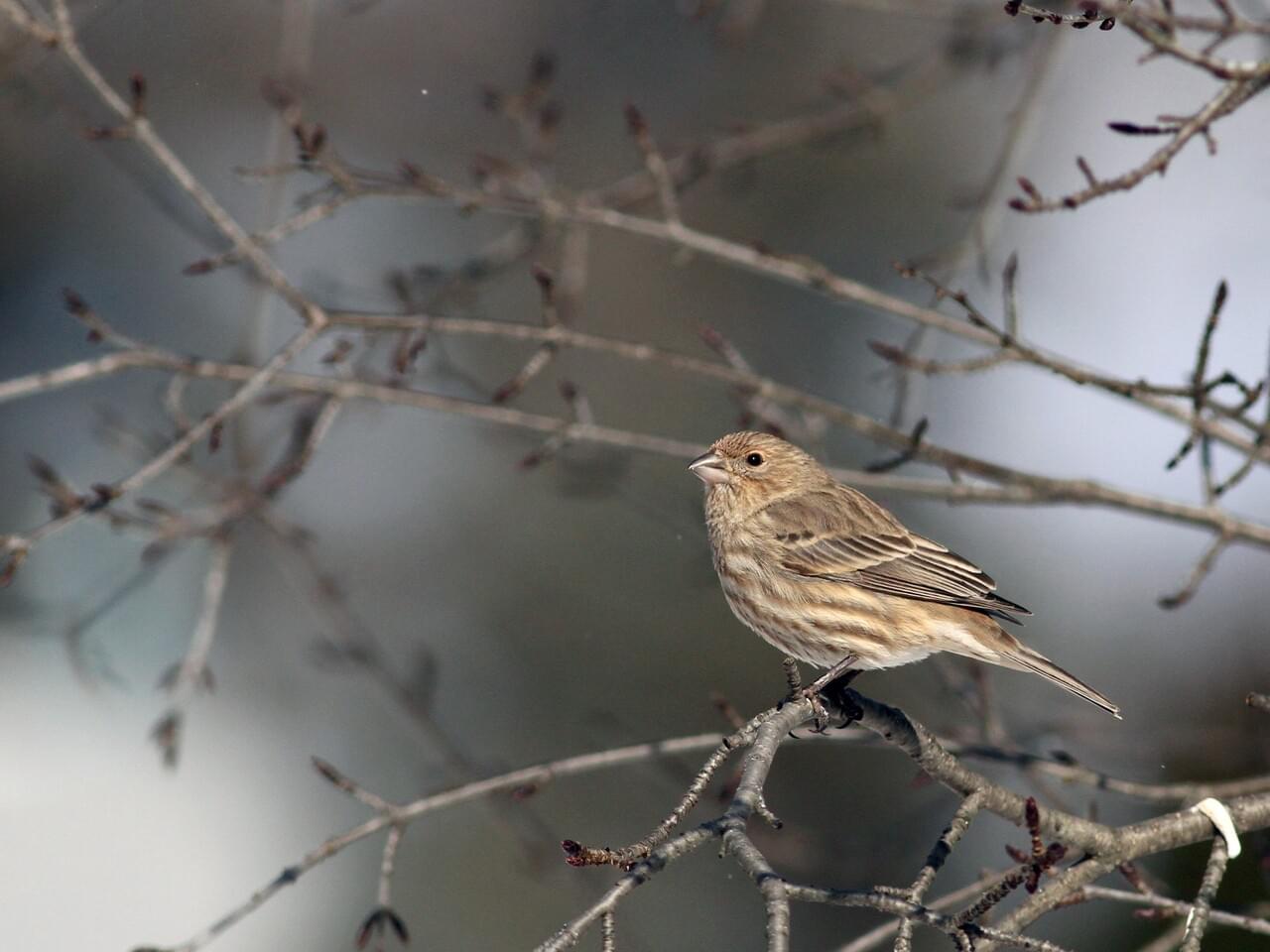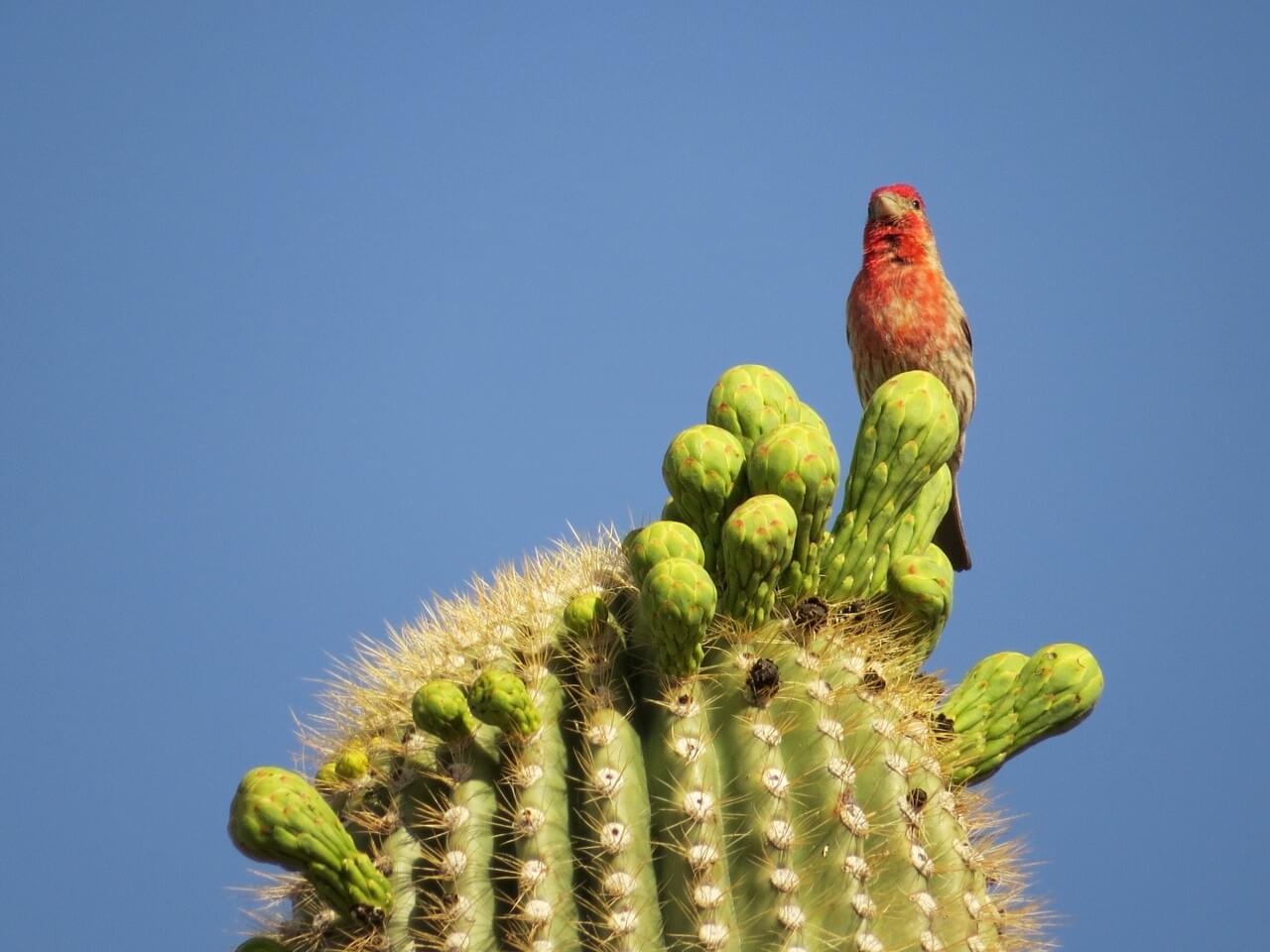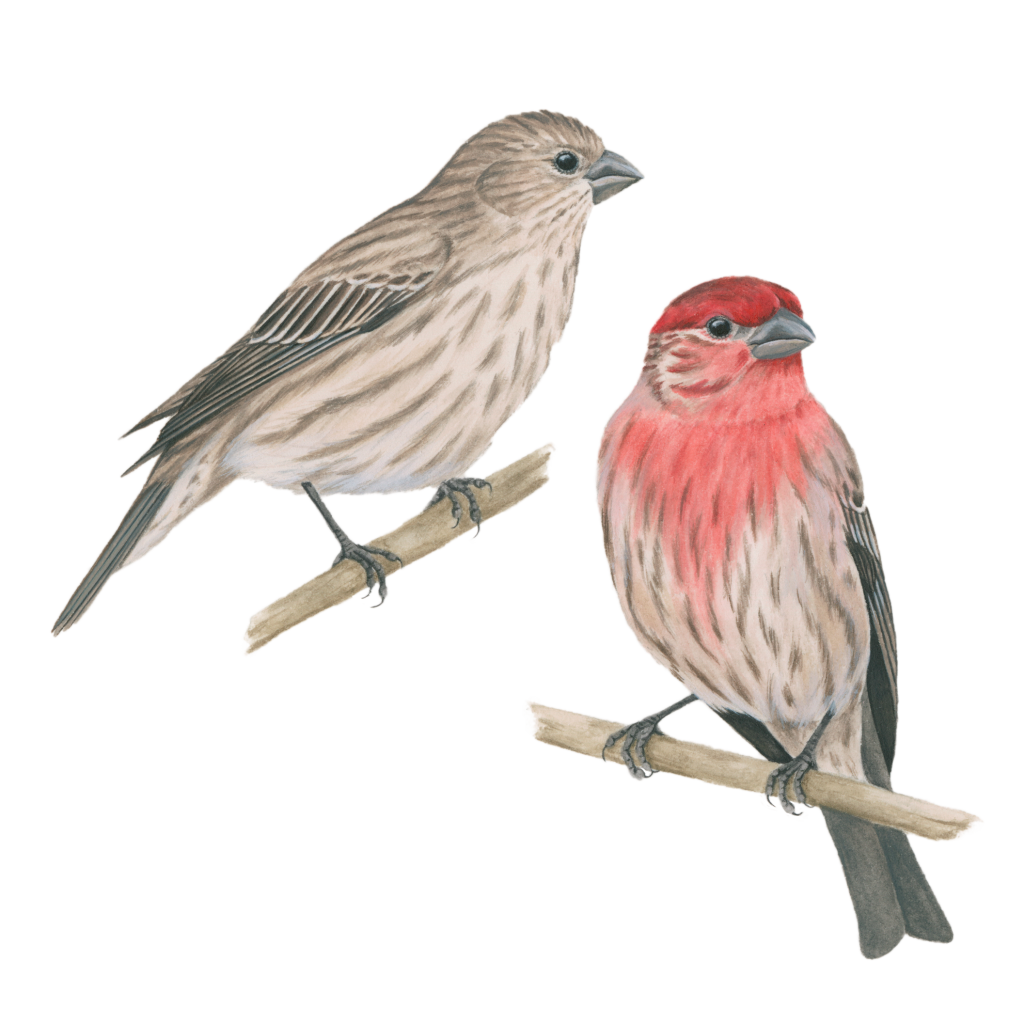 Photo ©
Liz Clayton Fuller
Photo ©
Liz Clayton Fuller
House Finch
Main Focal Species
The House Finch is a recent introduction from western into eastern North America (and Hawaii), but it has received a warmer reception than other arrivals like the European Starling and House Sparrow. That’s partly due to the cheerful red head and breast of males, and to the bird’s long, twittering song, which can now be heard in most of the neighborhoods of the continent. If you haven’t seen one recently, chances are you can find one at the next bird feeder you come across.
Range
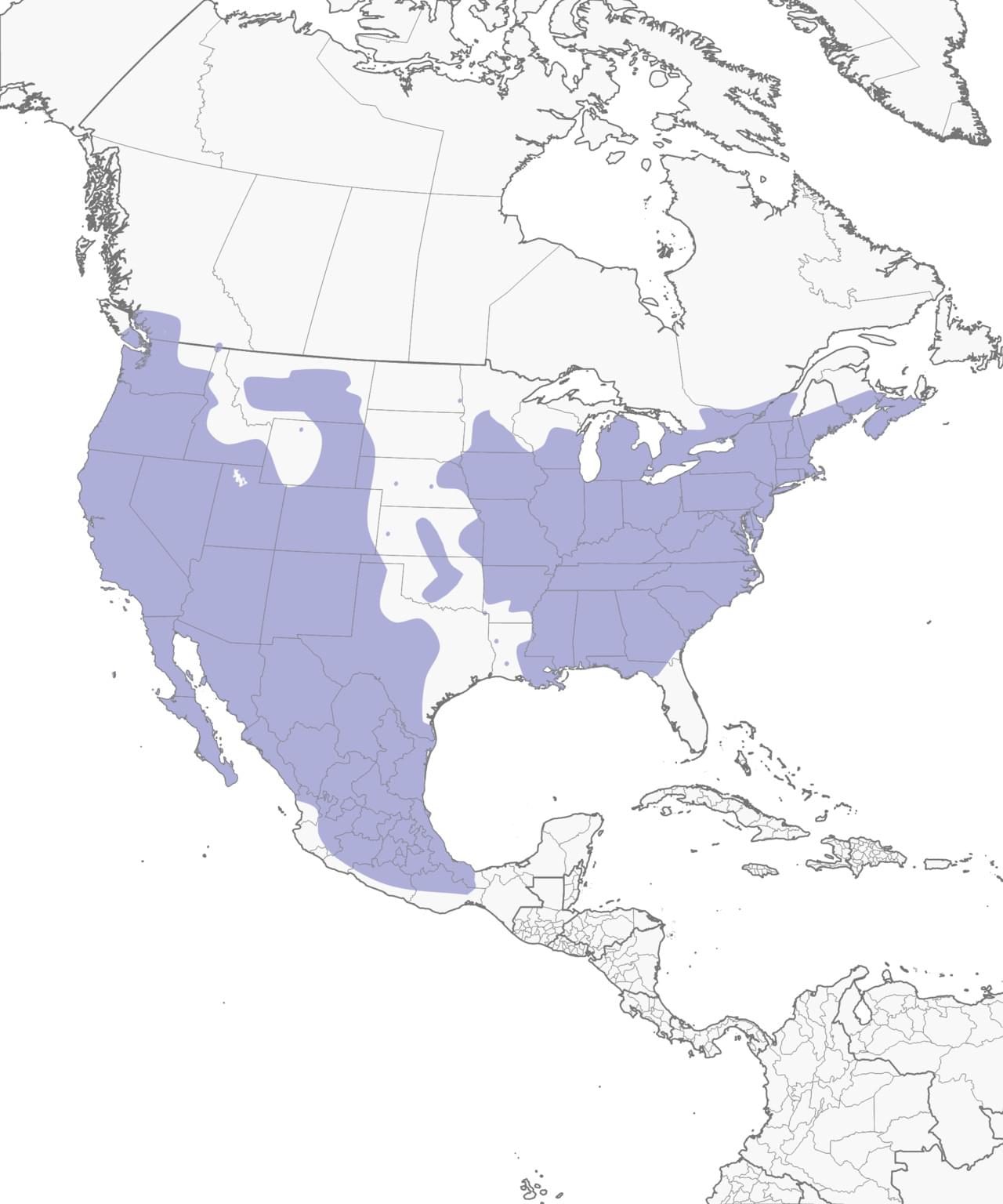
Habitat
House Finches are familiar birds of human-created habitats including buildings, lawns, small conifers, and urban centers. In rural areas, you can also find House Finches around barns and stables. In their native range in the West, House Finches live in natural habitats including dry desert, desert grassland, chaparral, oak savannah, streamsides, and open coniferous forests at elevations below 6,000 feet.
Food
House Finches eat almost exclusively plant materials, including seeds, buds and fruits. Wild foods include wild mustard seeds, knotweed, thistle, mulberry, poison oak, cactus, and many other species. In orchards, House Finches eat cherries, apricots, peaches, pears, plums, strawberries, blackberries, and figs. At feeders they eat black oil sunflower over the larger, striped sunflower seeds, millet, and milo.
Behavior
A highly social bird, the House Finch is rarely seen alone outside of the breeding season, and may form flocks as large as several hundred birds. House Finches feed mainly on the ground or at feeders or fruiting trees. At rest, they commonly perch on the highest point available in a tree, and flocks often perch on power lines. During courtship, males sometimes feed females in a display that begins with the female gently pecking at his bill and fluttering her wings. The male simulates regurgitating food to the female several times before actually feeding her.
Nesting
A House Finch’s nest is a cup made of fine stems, leaves, rootlets, thin twigs, string, wool, and feathers, with similar, but finer materials for the lining. Overall width of the nest is 3-7 inches, with the inside cup 1-3 inches across and up to 2 inches deep.
Appearance
Typical Sound

© William R. Fish / Macaulay Library
Size & Shape
House Finches are small-bodied finches with fairly large beaks and somewhat long, flat heads. The wings are short, making the tail seem long by comparison. Many finches have distinctly notched tails, but the House Finch has a relatively shallow notch in its tail.
Color Pattern
Adult males are rosy red around the face and upper breast, with streaky brown back, belly and tail. In flight, the red rump is conspicuous. Adult females aren’t red; they are plain grayish-brown with thick, blurry streaks and an indistinctly marked face.
Plumage Photos
Similar Species
House Finches have blurry grayish streaking on the belly and flanks, unlike either Cassin's Finch or Purple Finches. Female House Finches have a plainer brown head, where female Purple Finches are more strikingly brown and white. Female House Sparrows have light-brown stripes on the back and are unstreaked on the chest and belly. Bill shape is distinctive for House Finches: it's fairly blunt, and rounded, without a sharp tip. Purple and Cassin's finches both have longer, less rounded bills. Pine Siskins are even more streaky than female House Finches, with yellow patches in the wings and a thinner, more pointed bill. Female House Sparrows are warmer brown above and don't have streaked underparts.
Did you know?!
- The red or yellow color of a male House Finch comes from pigments that it gets in its food. The more pigment in the food, the redder the male. Females prefer to mate with the reddest male they can find.
- The poop of nestling House finches is enclosed in a thin sac called a fecal sac (this is true for most birds). The parents eat the fecal sacs of the nestlings for about the first five days. When most parent songbirds stop eating the sacs, they carry the sacs away from the nest. House Finch parents don’t do this and the sacs build up around the rim of the nest.
